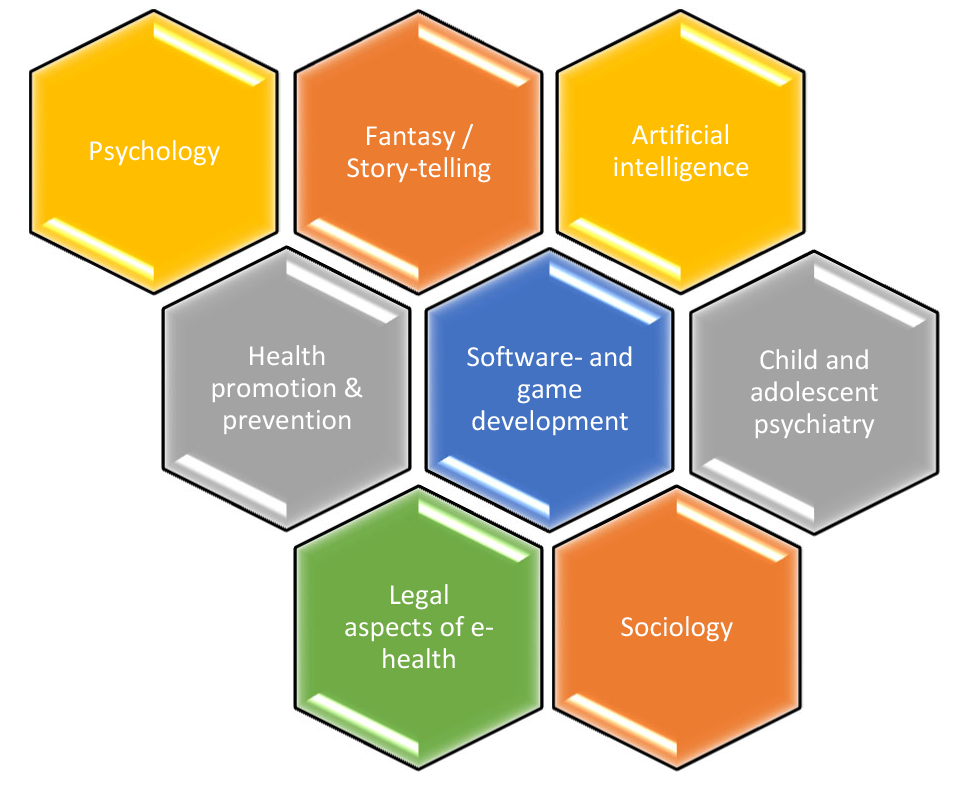The Project
The project is divided into three phases:
Phase 1: Needs Assessment
In the first phase of the project, the needs assessment, a systematic literature review and a survey in schools were conducted. The aim of the literature review was to gain an overview of existing game-based interventions and the underlying theories. Furthermore, we wanted to gain insight into the effectiveness of these interventions. In the school survey, we identified the key learning objectives for promoting health literacy. This was done through focus groups (= a group discussion), where students discussed their experiences with video and smartphone games, as well as their opinions on using games to promote mental health. Additionally, anonymous online questionnaires were sent to stakeholders in the school setting (teachers, principals, school psychologists, etc.) in order to gain a better overview of potential fostering and hindering factors for the implementation of the intervention in schools.
Phase 2: Game Development and Implementation
Currently, we are in the second phase, in which, based on the insights gained in phase 1, the concrete learning objectives are formulated and the story as well as the design of the game are developed. This phase involves close interdisciplinary collaboration between experts in psychology, child and adolescent psychiatry, software and game development, artificial intelligence, sociology, and fantasy storytelling. Children and adolescents themselves are also involved in the game development as "Young Co-Researchers" and provide regular feedback during the development phase. Multiple usability tests are being conducted in this phase to generate initial feedback on the game and to improve it continuously.
The following expertise will be incorporated into the game development:
Phase 3: Pilot Study
In the third phase, a pilot study will be conducted to assess the potential efficacy of this game-based intervention. For this purpose, school classes in Lower Austria and Vienna will be selected to test the game with their students over a longer period of time. The effect of the game on mental health literacy will be evaluated using standardized questionnaires. In addition to the intervention itself, the school implementation is being evaluated in order to establish the basis for long-term adoption.

